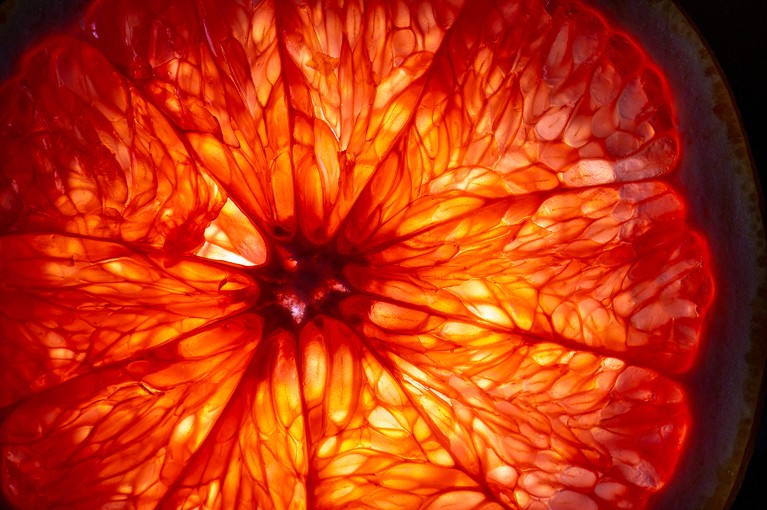Human gut microbes can unlock nutrients hidden in orange pulp that boost the metabolism of mice1.
Every year, millions of tons of fruit and vegetable peels are deposited in landfills. To explore the nutritional value of this food waste, Jeffrey Gordon at Washington University in St. Louis, Missouri, and his colleagues raised two groups of mice: those in one group harboured common human gut bacteria, and the others were germ-free. The team fed the mice a diet commonly consumed by people in the United States; some mice also ate fibre from either peas or orange pulp.
Only the mice that bore the human gut bacteria and consumed the orange fibres could free a compound buried in the fibre called N-methylserotonin. When researchers fed this compound to germ-free mice that had not eaten orange fibres, the mice stored less fat, metabolized sugar in the liver faster and spent less time digesting their food than mice that did not receive the supplement.
The same compound was freed by gut microbes in humans who ate an orange-fibre snack. This approach could identify helpful nutrients in food waste, the authors conclude.




